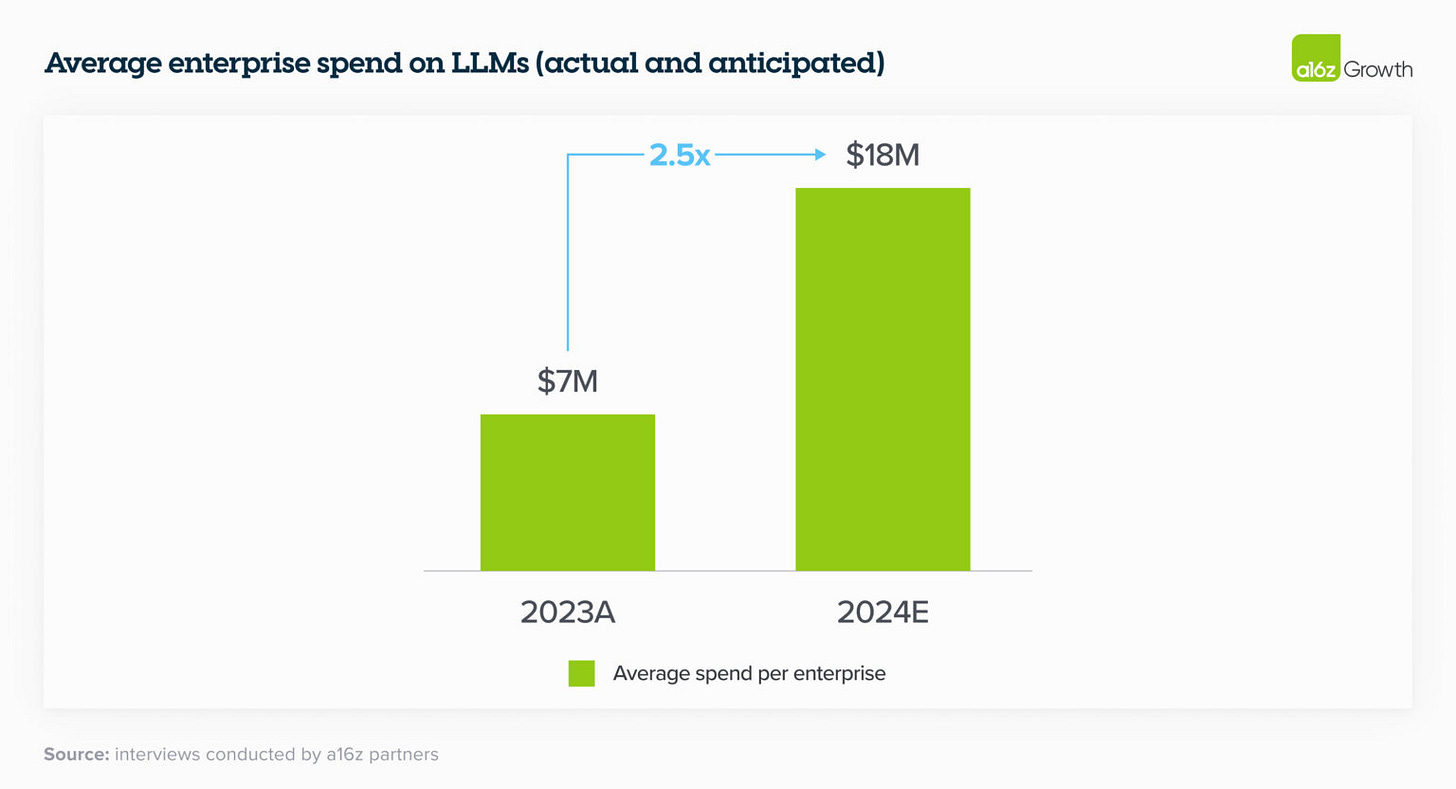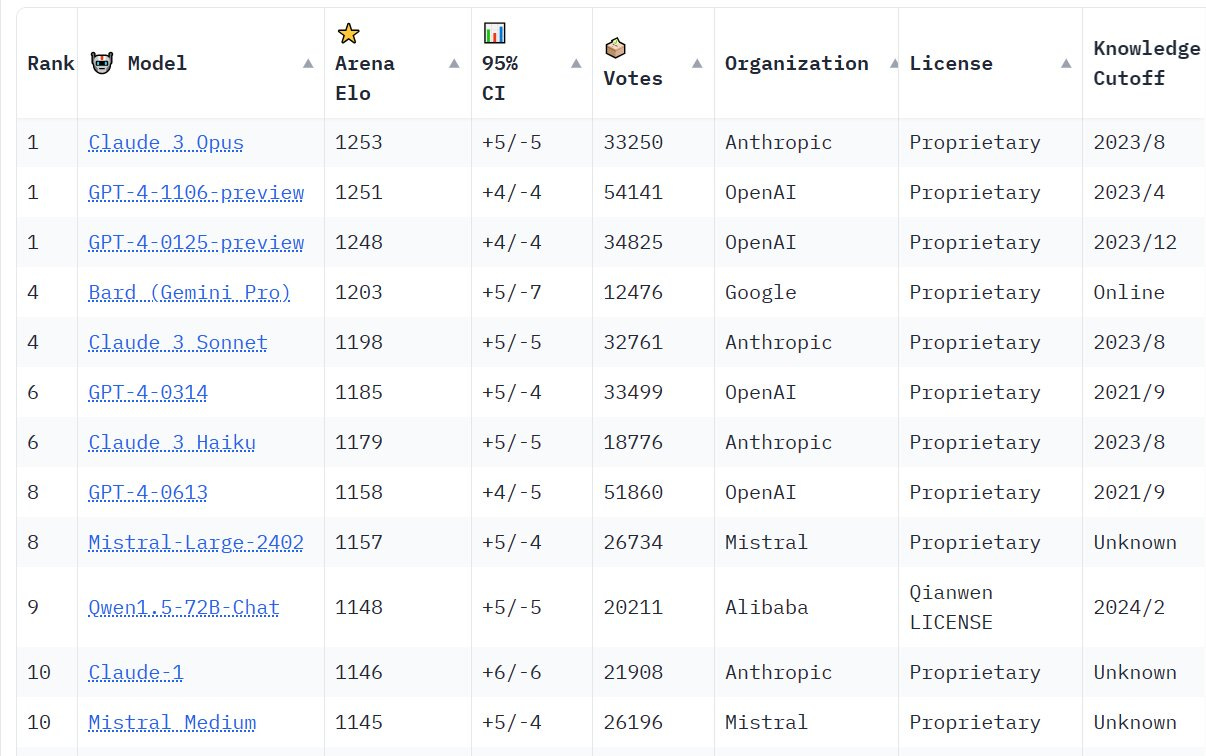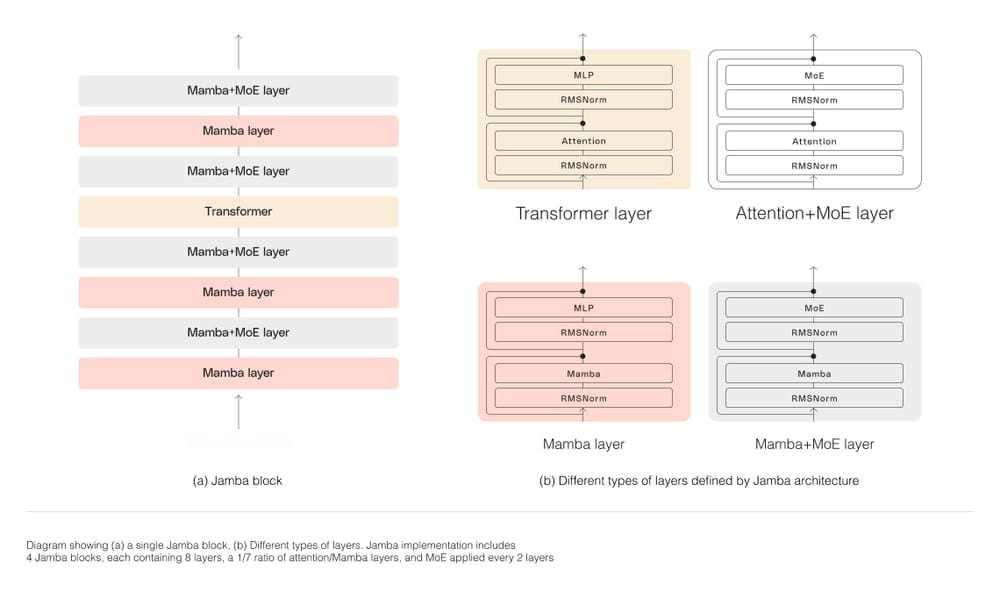AI Weekly Rundown (March 23 to March 29)
Major AI announcements from Zoom, Microsoft, Anthropic, DeepMind and more.
Hello Engineering Leaders and AI Enthusiasts!
Another eventful week in the AI realm. Lots of big news from huge enterprises.
In today’s edition:
🔥 Zoom launches all-in-one modern AI collab platform
🤖 Stability AI launches instruction-tuned LLM
🚨 Stability AI CEO resigns to focus on decentralized AI
📊 Microsoft study reveals the 11 by 11 tipping point for AI adoption
🧠 A16z spotlights the rise of generative AI in enterprises
🖼️ Gaussian Frosting revolutionalizes surface reconstruction in 3D modeling
⚡ DBRX becomes world’s most powerful open-source LLM
🏆 Claude 3 Opus crowned the top user-rated chatbot, beating GPT-4
💙 Empathy meets AI: Hume AI's EVI redefines voice interaction
🚀 AI21 Labs’ Jamba triples AI throughput
📃 Google DeepMind's AI fact-checker outperforms humans
💻 X’s Grok gets a major upgrade
Let’s go!
Zoom launches all-in-one modern AI collab platform
Zoom launched Zoom Workplace, an AI collaboration platform that integrates many tools to improve teamwork and productivity. With over 40 new features, including AI Companion updates for Zoom Phone, Team Chat, Events, and Contact Center, as well as the introduction of Ask AI Companion, Zoom Workplace simplifies workflows within a familiar interface.
The platform offers customization options, meeting features, and improved collaboration tools across Zoom's ecosystem. Zoom Business Services, integrated with Zoom Workplace, offers AI-driven marketing, customer service, and sales solutions.
Stability AI launches instruction-tuned LLM
Stability AI has introduced Stable Code Instruct 3B, a new instruction-tuned large language model. It can handle various software development tasks, such as code completion, generation, translation, and explanation, as well as creating database queries with simple instructions.
Stable Code Instruct 3B claims to outperform rival models like CodeLlama 7B Instruct and DeepSeek-Coder Instruct 1.3B in terms of accuracy, understanding natural language instructions, and handling diverse programming languages. The model is accessible for commercial use with a Stability AI Membership.
Stability AI CEO resigns to focus on decentralized AI
Emad Mostaque, the founder and CEO of Stability AI, has resigned from his role and the company's board of directors to pursue decentralized AI. Mostaque believes that centralized AI cannot be beaten with more centralized AI and highlights the need for more transparent and distributed governance in the industry.
The AI startup has appointed COO Shan Shan Wong and CTO Christian Laforte as interim co-CEOs while searching for a permanent replacement. Mostaque's departure comes amid a chaotic period for Stability AI, with reports of senior executive departures and investor disputes throughout 2023.
Microsoft study reveals the 11 by 11 tipping point for AI adoption
Microsoft's study on AI adoption in the workplace revealed the "11-by-11 tipping point," where users start seeing AI's value by saving 11 minutes daily. The study involved 1,300 Copilot for Microsoft 365 users and showed that 11 minutes of time savings is enough for most people to find AI useful.
Over 11 weeks, users reported improved productivity, work enjoyment, work-life balance, and fewer meetings. This "11-by-11 tipping point" signifies the time it takes for individuals to experience AI's benefits in their work fully.
A16z spotlights the rise of generative AI in enterprises
A groundbreaking report by the influential tech firm a16z unveils the rapid integration of generative AI technologies within the corporate sphere. The report highlights essential considerations for business leaders to harness generative AI effectively. It covers resource allocation, model selection, and innovative use cases, providing a strategic roadmap for enterprises.
An increased financial commitment from businesses marks the adoption of generative AI. Industry leaders are tripling their investments in AI technologies, emphasizing the pivotal role of generative AI in driving innovation and efficiency.
Gaussian Frosting revolutionalizes surface reconstruction in 3D modeling
At the international conference on computer vision, researchers presented a new method to improve surface reconstruction using Gaussian Frosting. This technique automates the adjustment of Poisson surface reconstruction hyperparameters, resulting in significantly improved mesh reconstruction.
The method showcases the potential for scaling up mesh reconstruction while preserving intricate details and opens up possibilities for advanced geometry and texture editing. This work marks a significant step forward in surface reconstruction methods, promising advancements in 3D modeling and visualization techniques.
Enjoying the weekly updates?
Refer your pals to subscribe to our newsletter and get exclusive access to 400+ game-changing AI tools.
When you use the referral link above or the “Share” button on any post, you'll get the credit for any new subscribers. All you need to do is send the link via text or email or share it on social media with friends.
DBRX becomes world’s most powerful open source LLM
Databricks has released DBRX, a family of open-source large language models setting a new standard for performance and efficiency. The series includes DBRX Base and DBRX Instruct, which were developed by Databricks' Mosaic AI team and trained using NVIDIA DGX Cloud. These models leverage an optimized mixture-of-experts (MoE) architecture to achieve 2x compute efficiency than other leading LLMs.
In terms of performance, DBRX outperforms open-source models like Llama 2 70B, Mixtral-8x7B, and Grok-1 on industry benchmarks for language understanding, programming, and math. It also surpasses GPT-3.5 on most of these benchmarks, although it still lags behind GPT-4.
Claude 3 Opus crowned the top user-rated chatbot, beating OpenAI’s GPT-4
Anthropic's Claude 3 Opus has overtaken OpenAI's GPT-4 to become the top-rated chatbot on the Chatbot Arena leaderboard. This marks the first time in approximately a year since GPT-4's release that another language model has surpassed it in this benchmark, which ranks models based on user preferences. Anthropic's cheaper Haiku and mid-range Sonnet models also perform impressively, coming close to the original GPT-4's capabilities at a significantly lower cost.
While OpenAI still dominates the market, this development and recent leadership changes at OpenAI have helped Anthropic gain ground. However, OpenAI is rumored to be preparing to launch an even more advanced "GPT-4.5" or "GPT-5" model as soon as this summer, hoping to make a comeback on the top.
Empathy meets AI: Hume AI's EVI redefines voice interaction
Hume AI has introduced a new conversational AI called Empathic Voice Interface (EVI). What sets EVI apart from other voice interfaces is its ability to understand and respond to the user's tone of voice, adding emotional intelligence to interaction. By adapting its language and responses based on the user's expressions, EVI creates a human-like experience, blurring the lines between artificial and emotional intelligence.
EVI's empathic capabilities extend beyond just understanding tone. It can accurately detect the end of a conversation turn, handle interruptions, and even learn from user reactions to improve over time. These features, along with its fast and reliable transcription and text-to-speech capabilities, make EVI a highly adaptable tool.
AI21 Labs’ Jamba triples AI throughput
AI21 Labs has released Jamba, the first-ever production-grade AI model based on the Mamba architecture. This new architecture combines the strengths of both traditional Transformer models and the Mamba SSM, resulting in a model that is both powerful and efficient.
Jamba's hybrid architecture, composed of Transformer, Mamba, and mixture-of-experts (MoE) layers, optimizes for memory, throughput, and performance simultaneously.
The model has demonstrated remarkable results on various benchmarks, matching or outperforming state-of-the-art models in its size class. Jamba is being released with open weights under Apache 2.0 license and will be accessible from the NVIDIA API catalog.
Google DeepMind's AI fact-checker outperforms humans
Google DeepMind has developed an AI system called Search-Augmented Factuality Evaluator (SAFE) that can evaluate the accuracy of information generated by large language models more effectively than human fact-checkers. In a study, SAFE matched human ratings 72% of the time and was correct in 76% of disagreements with humans.
While some experts question the use of "superhuman" to describe SAFE's performance, arguing for benchmarking against expert fact-checkers, the system's cost-effectiveness is undeniable, being 20 times cheaper than human fact-checkers.
X’s Grok gets a major upgrade
X.ai, Elon Musk's AI startup, has introduced Grok-1.5, an upgraded AI model for their Grok chatbot. This new version enhances reasoning skills, especially in coding and math tasks, and expands its capacity to handle longer and more complex inputs with a 128,000-token context window.
Grok chatbots are known for their ability to discuss controversial topics with a rebellious touch. The improved model will first be tested by early users on X, with plans for wider availability later.
That's all for now!
Subscribe to The AI Edge and gain exclusive access to content enjoyed by professionals from Moody’s, Vonage, Voya, WEHI, Cox, INSEAD, and other esteemed organizations.
Thanks for reading, and see you on Monday. 😊











